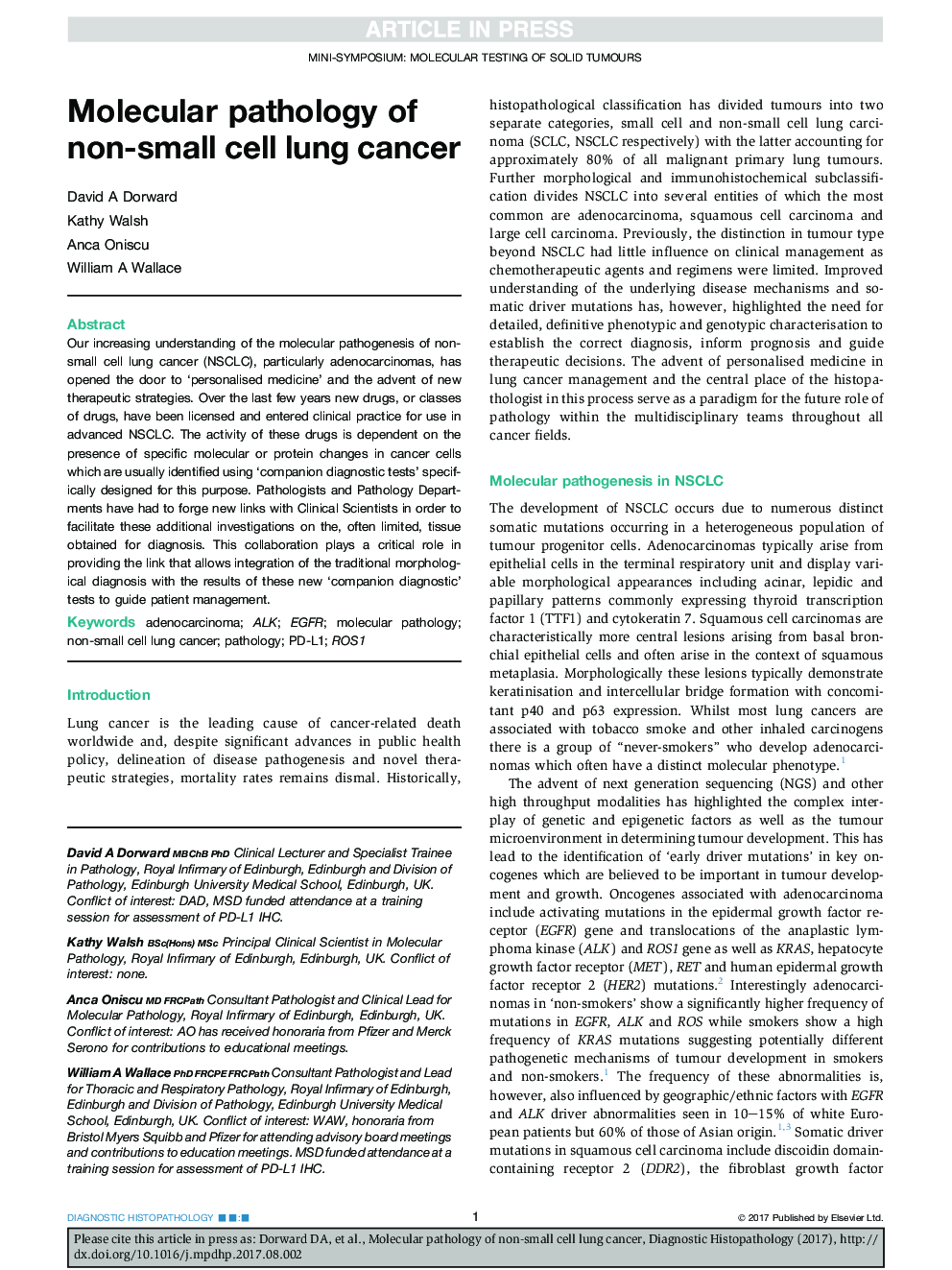| Article ID | Journal | Published Year | Pages | File Type |
|---|---|---|---|---|
| 8807350 | Diagnostic Histopathology | 2017 | 8 Pages |
Abstract
Our increasing understanding of the molecular pathogenesis of non-small cell lung cancer (NSCLC), particularly adenocarcinomas, has opened the door to 'personalised medicine' and the advent of new therapeutic strategies. Over the last few years new drugs, or classes of drugs, have been licensed and entered clinical practice for use in advanced NSCLC. The activity of these drugs is dependent on the presence of specific molecular or protein changes in cancer cells which are usually identified using 'companion diagnostic tests' specifically designed for this purpose. Pathologists and Pathology Departments have had to forge new links with Clinical Scientists in order to facilitate these additional investigations on the, often limited, tissue obtained for diagnosis. This collaboration plays a critical role in providing the link that allows integration of the traditional morphological diagnosis with the results of these new 'companion diagnostic' tests to guide patient management.
Related Topics
Health Sciences
Medicine and Dentistry
Pathology and Medical Technology
Authors
David A. Dorward, Kathy Walsh, Anca Oniscu, William A. Wallace,
